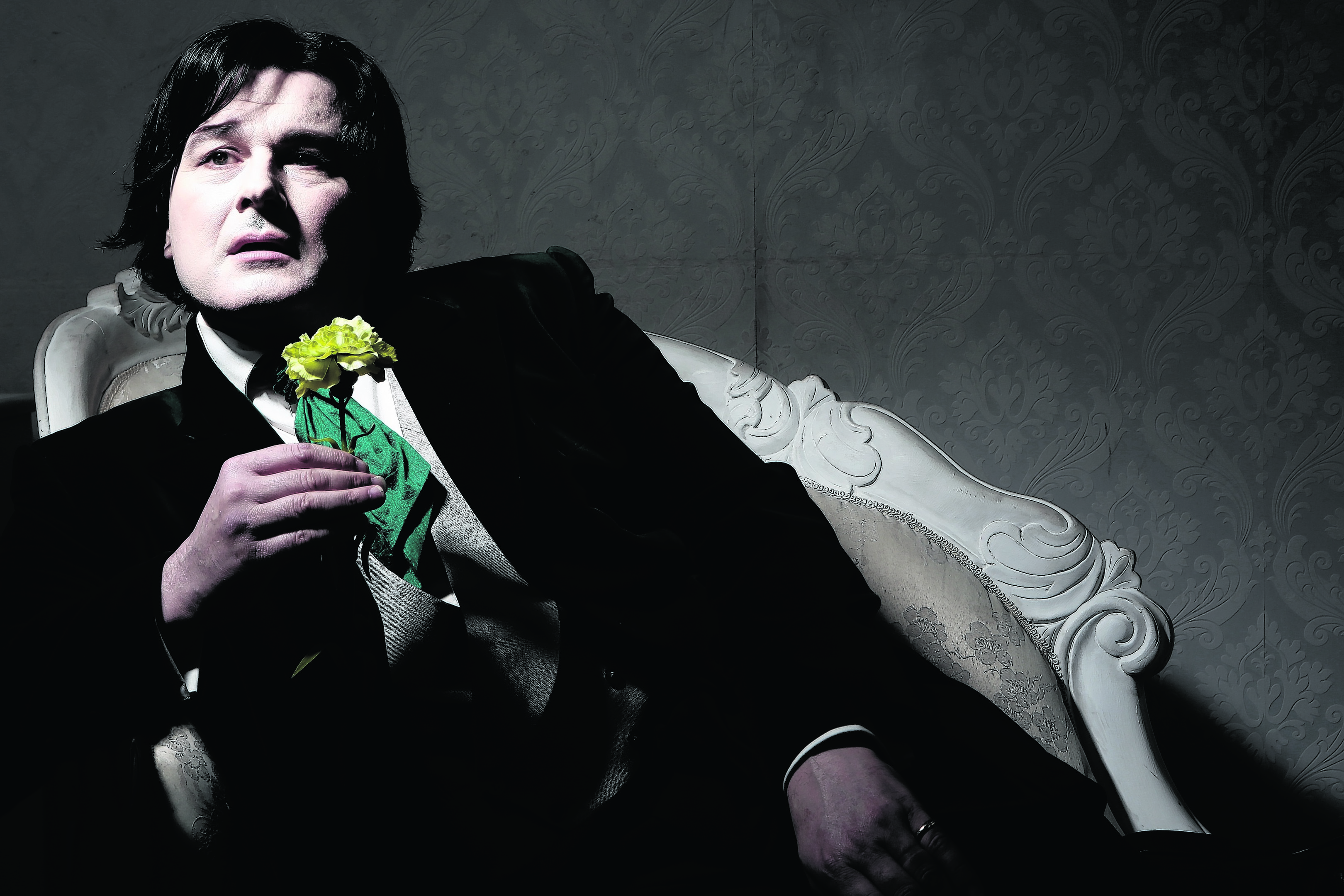Get ready to go wild for the wisdom, wit and heartache of Oscar Wilde, writes Susan Welsh
History was made on December 31 last year when it became legal for same-sex couples to marry, legislation which allows them to show their love and commitment to each other in a ceremony they choose together.
It demonstrates a huge change in attitude towards same-sex relationships but also brings sharply into focus how difficult it must have been in the past for anyone who wasn’t heterosexual.
Take playwright Oscar Wilde, for example. He was famously sentenced to two years’ hard labour for acts of gross indecency with other males. An insight into the mind of this bruised, loving man, around this time of his life, can be found at Eden Court next week when highly respected actor Gerard Logan presents Wilde Without the Boy, a dramatisation of De Profundis by Wilde, which will be followed in the second half by a reading of his classic poem The Ballad of Reading Gaol.
Homosexuality was decriminalised in Scotland in 1980, but in Wilde’s days, “the love that dare not speak its name” was not only a crime but a serious social taboo.
“I know a lot of people may disagree with me, but I think when the Marquis of Queensbury decided to pursue Wilde after the case against him broke down, Oscar had the opportunity to flee abroad, but he didn’t,” said Gerard, 51.
“He sat in his room at the Cadogan Hotel in Knightsbridge with a drink and waited for the police to come and arrest him. I’ve been in that room and thought about him waiting there. I feel that if he had fled abroad then his stature wouldn’t be anywhere near as big as it is now.
“He embraced his fate and martyred himself because he knew there was a higher good at stake. I think his heart would be very full right now because of the recent changes in law.”
The one-man show features music by Simon Slater and has been directed and dramatised by Gareth Armstrong, but it is entirely Oscar Fingal O’Flahertie Wills Wilde’s own words.
“The first half of the evening is called Wilde Without the Boy, and is an adaptation of a letter entitled De Profundis, which Oscar wrote to his lover, Lord Arthur Douglas, son of the Marquis of Queensbury, from Reading Gaol in 1897.
As far as Oscar was concerned, Lord Arthur Douglas had not tried to contact him with any news or message of support during the whole two years he spent in Reading Gaol.
“The letter outlines his feelings towards Douglas and he says ‘this is what you’ve done to me but also this is what I’ve done to myself. I’ve allowed myself to become involved with someone who is not up there with me. I’ve allowed my life to be completely controlled by you and surrendered my willpower to somebody who had no intellectual daring’,” said Gerard.
“The gods had given me almost everything – genius, high social position, brilliancy, intellectual daring. Whatever I touched I made beautiful – I summed up all systems in a phrase, and all existence in an epigram,” writes Wilde.
“I think Wilde felt that he’d been so lauded he’d become something of a society darling, and that had become a bit boring. He was tired of the highs so went for depth. He speaks about having his meals with rent boys which he describes as ‘feasting with panthers’ – the danger of being caught was half the excitement.”
The play is all Wilde’s own words but has been interspersed with a couple of scenes from his trials.
The second half of the evening sees Gerard, an Olivier nominee and previous winner of The Stage’s “Best Actor” award at the Edinburgh Festival, present The Ballad of Reading Gaol.
“This is the brilliant and moving poem Wilde wrote when he left jail which is all about his experiences in jail. While there, a man was being hanged because he’d murdered his wife and he was very struck by the idea that the man had killed the thing he loved. He felt that all men kill the thing they love,” said Gerard, who last appeared at Eden Court in The Rape of Lucrece.
Portraying such a well-known person in a one-man show is a huge task, but one which Gerard pulls of with ease. “It’s a bit like Shakespeare, the words you have to say are so beautiful, the writing is such genius that all you have to do is show up and not louse it up,” he said modestly.
“You just show up, say the words, and let the piece be the star.”
While appearing in Inverness, Gerard, who is married to former classically trained ballerina and children’s agent Alex Logan, will make sure he sets aside time to visit Loch Ness. “I’m an Irishman, but as a child I used to regularly have dreams about visiting the Highlands.
“The first time I visited was in 1988 to appear at Eden Court in another Wilde production, The Importance of Being Earnest. While there I visited Loch Ness, which I’d visited so many times in my dreams.
“It so impressed me that it was during a visit to Drumnadrochit that I proposed to Alex. She said yes, so we went back there for our honeymoon.
“I’m sure actors tell you all the time they’re so looking forward to coming to Inverness, but in my case I really mean it!”
Wilde Without the Boy and The Ballad of Reading Gaol is at Eden Court Theatre, Inverness, on Monday, February 9, with a performance at 8pm. Contact 01463 234234 or visit www.eden-court.co.uk
